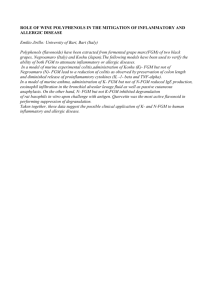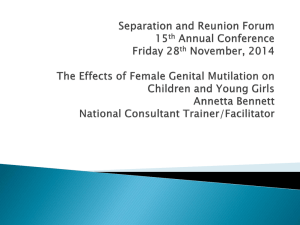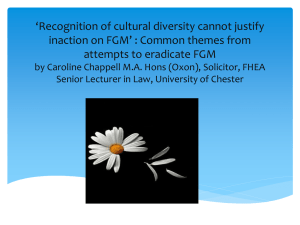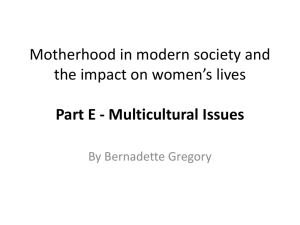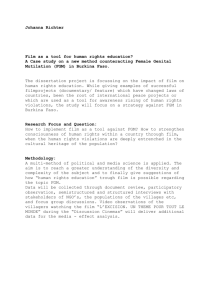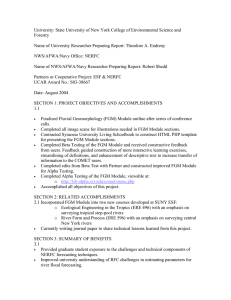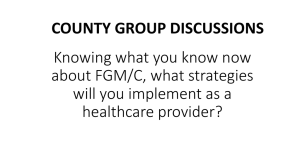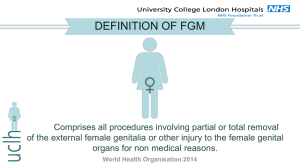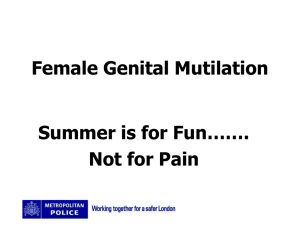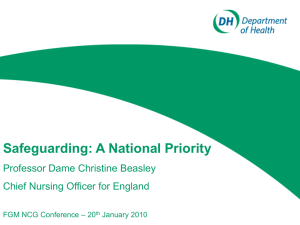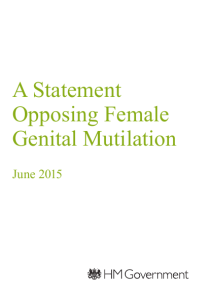Click here for our Safeguarding Girls and Young Women at risk of
advertisement
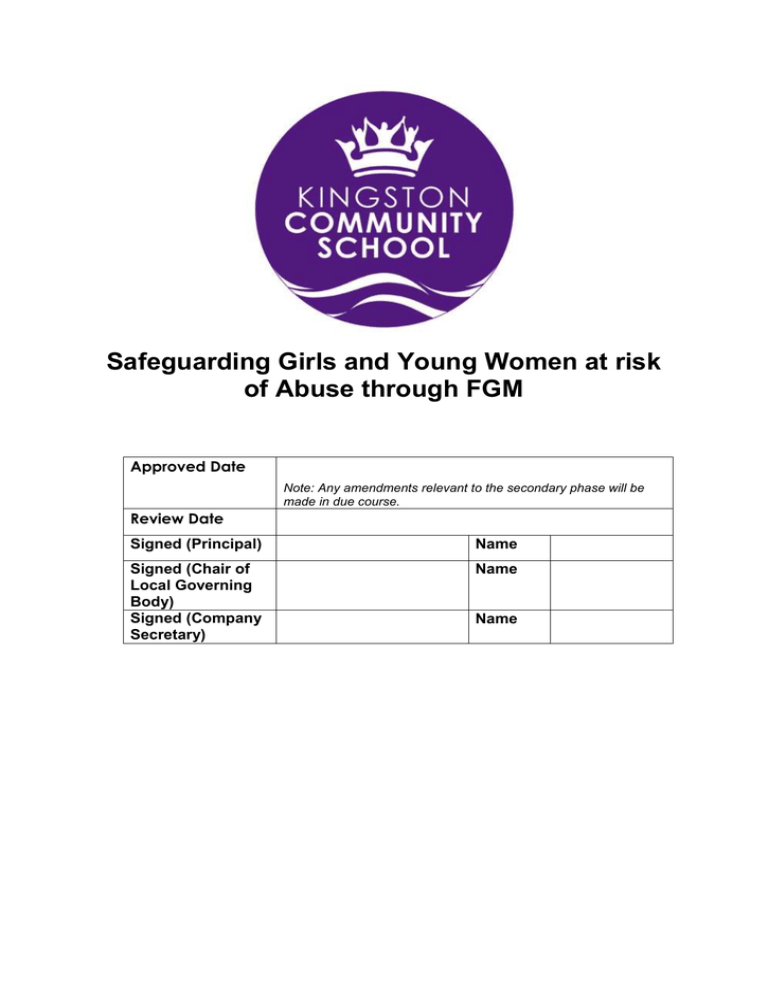
Safeguarding Girls and Young Women at risk of Abuse through FGM Approved Date Note: Any amendments relevant to the secondary phase will be made in due course. Review Date Signed (Principal) Name Signed (Chair of Local Governing Body) Signed (Company Secretary) Name Name The World Health Organisation, (WHO), states that FGM “comprises all procedures that involve partial or total removal of the external female genitalia, or other injury to the female genital organs for non-medical reasons” (WHO 2008). Kingston Community School recognises that while there is no intent to harm a girl or young woman through FGM, the practice is extremely traumatic, can be fatal and has significant short and long term mental and physical suffering, menstrual and sexual problems, difficulty in giving birth, infertility etc. Although for some communities it is considered a religious act or cultural requirement, FGM is illegal in the UK and therefore is a child protection issue (Female Circumcision Prohibition Act, 1985). The Female Genital Mutilation Act, 2003, also makes it an offence to take UK nationals and those with permanent UK residence overseas for the purpose of circumcision, to aid and abet, counsel, or procure the carrying out of FGM. If any of the above concerns are brought to the attention of the Designated / Deputy Designated Leads, this will be reported immediately to Children’s Services at the Local Authority. Signs and Indicators Indications that FGM may have taken place, include: Family comes from a community that is known to practice FGM – sub-Saharan Africa, Asia, Middle East, Burkina Faso, Djibouti, Egypt, Eritrea, Ethiopia, Gambia, Guinea, Mali, Sierra Leone, Somalia and Sudan. Although girls and women from the Democratic Republic of Congo, Ghana, Niger, Tanzania, Togo, Uganda and Yemen are less likely to undergo FGM, within these countries there are particular ethnic communities where prevalence is higher. Girls and young women who are British citizens but whose parents were born in countries that practice FGM, may also be at risk. Having returned from a holiday in one of the above countries, a girl or young woman presents as suffering emotional / psychological effects of undergoing FGM e.g. withdrawal, depression etc. A girl or young woman regularly spends time out of class or from other activities with bladder or menstrual problems etc. A girl or young woman requiring to be excused from PE without the support of GP Indications that FGM may be about to take place include: A family from one of the above countries / communities is known to be planning a holiday to one of the above countries A girl or young woman expressing anxiety about a special procedure or a special occasion which may include discussion of a holiday to their country of origin A girl or young woman may refer to FGM either in relation to themselves or another family member or friend A girl or young woman requesting help to prevent it happening A boy may indicate some concern about his sister or other female relative. Support and information can also be obtained from the Agency for Culture and Change Management (Tel: 01142728780) This policy will be reviewed annually in conjunction with all other Safeguarding and Child Protection policies. June 2015
